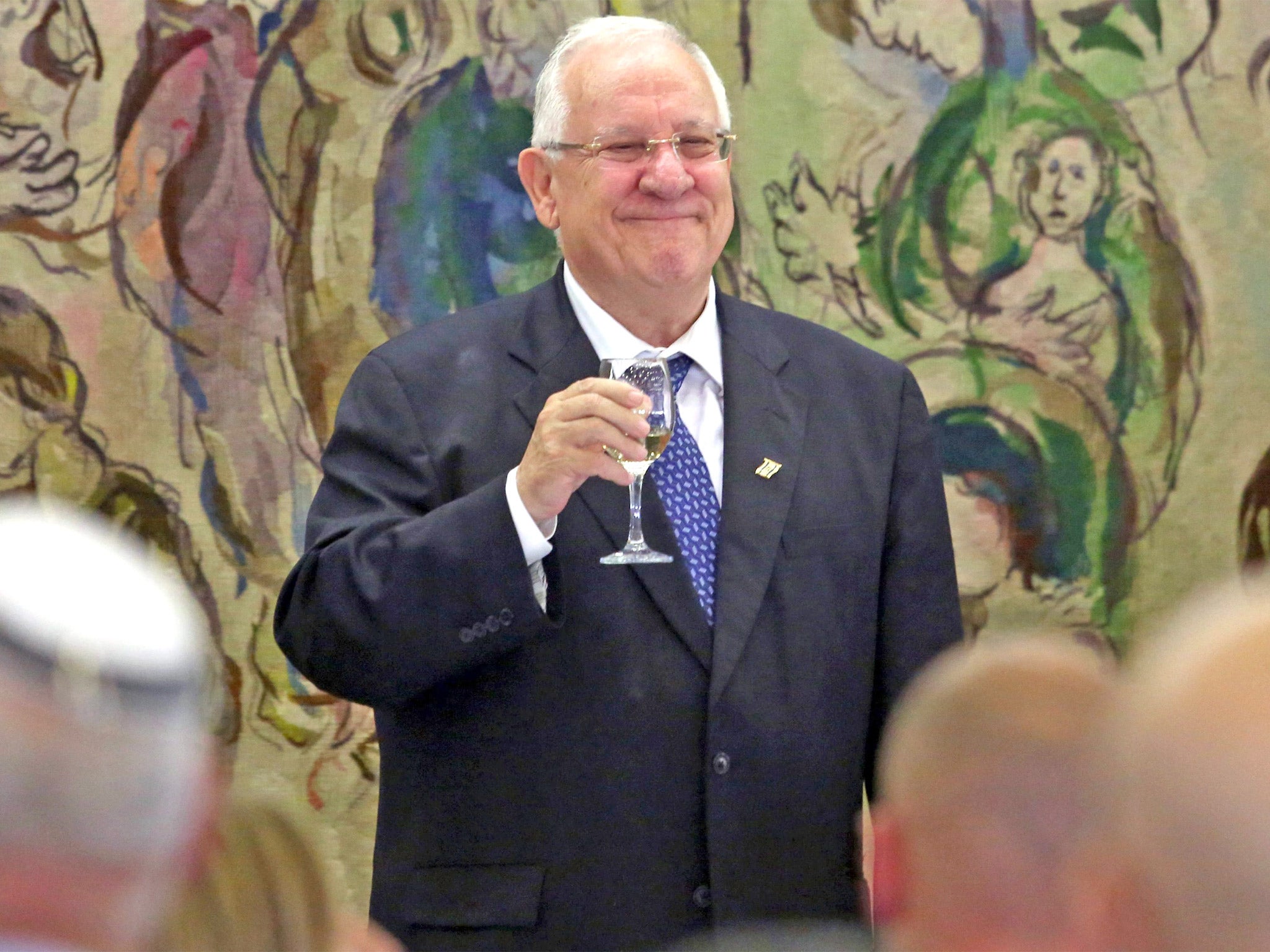Reuven Rivlin elected Israeli president: Benjamin Netanyahu’s bitter enemy to replace Shimon Peres after ugly contest for influential post
The 74-year-old replaces Shimon Peres who used the role to conduct secret negotiations with Palestinian President Mahmoud Abbas

Your support helps us to tell the story
From reproductive rights to climate change to Big Tech, The Independent is on the ground when the story is developing. Whether it's investigating the financials of Elon Musk's pro-Trump PAC or producing our latest documentary, 'The A Word', which shines a light on the American women fighting for reproductive rights, we know how important it is to parse out the facts from the messaging.
At such a critical moment in US history, we need reporters on the ground. Your donation allows us to keep sending journalists to speak to both sides of the story.
The Independent is trusted by Americans across the entire political spectrum. And unlike many other quality news outlets, we choose not to lock Americans out of our reporting and analysis with paywalls. We believe quality journalism should be available to everyone, paid for by those who can afford it.
Your support makes all the difference.Israel’s parliament has elected Reuven Rivlin, an ardent Jewish nationalist with a reputation as a staunch democrat, as the country’s next president, replacing Shimon Peres, the internationally respected statesman who in recent years provided a dovish foil to Prime Minister Benjamin Netanyahu.
Mr Rivlin, a former speaker of parliament from the ruling Likud party, gained 63 votes in a run-off against centrist politician Meir Sheetrit, who gained 53 votes. His election ended a gruelling and often ugly contest for a job which is largely ceremonial but also offers incumbents chances to wield influence. Mr Peres used his post to conduct secret negotiations with Palestinian President Mahmoud Abbas.
Mr Rivlin, 74, is seen as being independent of Mr Netanyahu. They have a long-standing feud and the Prime Minister sought to thwart his candidacy until he realised he was too popular to stop.
While Mr Netanyahu pays lip service to a two-state compromise with the Palestinians, Mr Rivlin unabashedly opposes it. Like Mr Netanyahu he is a firm backer of the illegal Israeli settlement drive in the occupied West Bank.
Fearing the international fallout, Mr Netanyahu has so far resisted pressure to formally annex most of the West Bank. Mr Rivlin advocates that all of the territory between the Jordan River and the Mediterranean Sea should be under Israeli sovereignty.
Israel, he argues, should grant citizenship to the Palestinians of the West Bank rather than keep them under the current combination of Palestinian self-rule and Israeli military rule.
During the previous Knesset, Mr Rivlin opposed legislation backed by Foreign Minister Avigdor Lieberman and much of Likud that was seen as anti-democratic, including a bill aimed at members of Israel’s Arab minority to make citizenship and voting dependent on declaring loyalty to Israel as a Jewish state.
He also opposed a bill aiming to muffle criticism of government and army policies in the West Bank by setting a high tax rate on foreign government donations to Israeli non-governmental organisations.
As speaker of the Knesset, Mr Rivlin visited the Max Rayne Hand in Hand School for Bilingual Education, the only school in Jerusalem where Jews and Arabs study together.
“Rivlin was warm to my students,” recalled Ayana Erdal, a high school teacher.
“He said that his father knew Arabic and had translated the Koran into Hebrew and had grown up with Arabs. He spoke respectfully and he had empathy when the students spoke of the nakba (Palestinian catastrophe) of 1948.
He said that a disaster befell the Palestinian nation in 1948. I was impressed by him. He recognised the suffering of others. I’m glad he is president.”
Menachem Klein, a political scientist at Bar Ilan University near Tel Aviv, said that if there was an Israeli withdrawal in the West Bank during Mr Rivlin’s term, he could play a key role in averting strife and violence by throwing his support behind respecting the results of a referendum.
The campaign was rocked by two scandals. Energy Minister Silvan Shalom decided last month not to run because of publicity surrounding a police investigation into allegations of sex crimes against an employee 15 years ago.
The case was closed because of the passage of time. On Saturday, Binyamin Ben-Eliezer, a former defence minister, withdrew after police began investigating allegations he had received large sums of money from individuals, including an oil magnate.
Mr Ben Eliezer said he was innocent of wrongdoing and the victim of a “targeted killing” of his candidacy.
Join our commenting forum
Join thought-provoking conversations, follow other Independent readers and see their replies
Comments